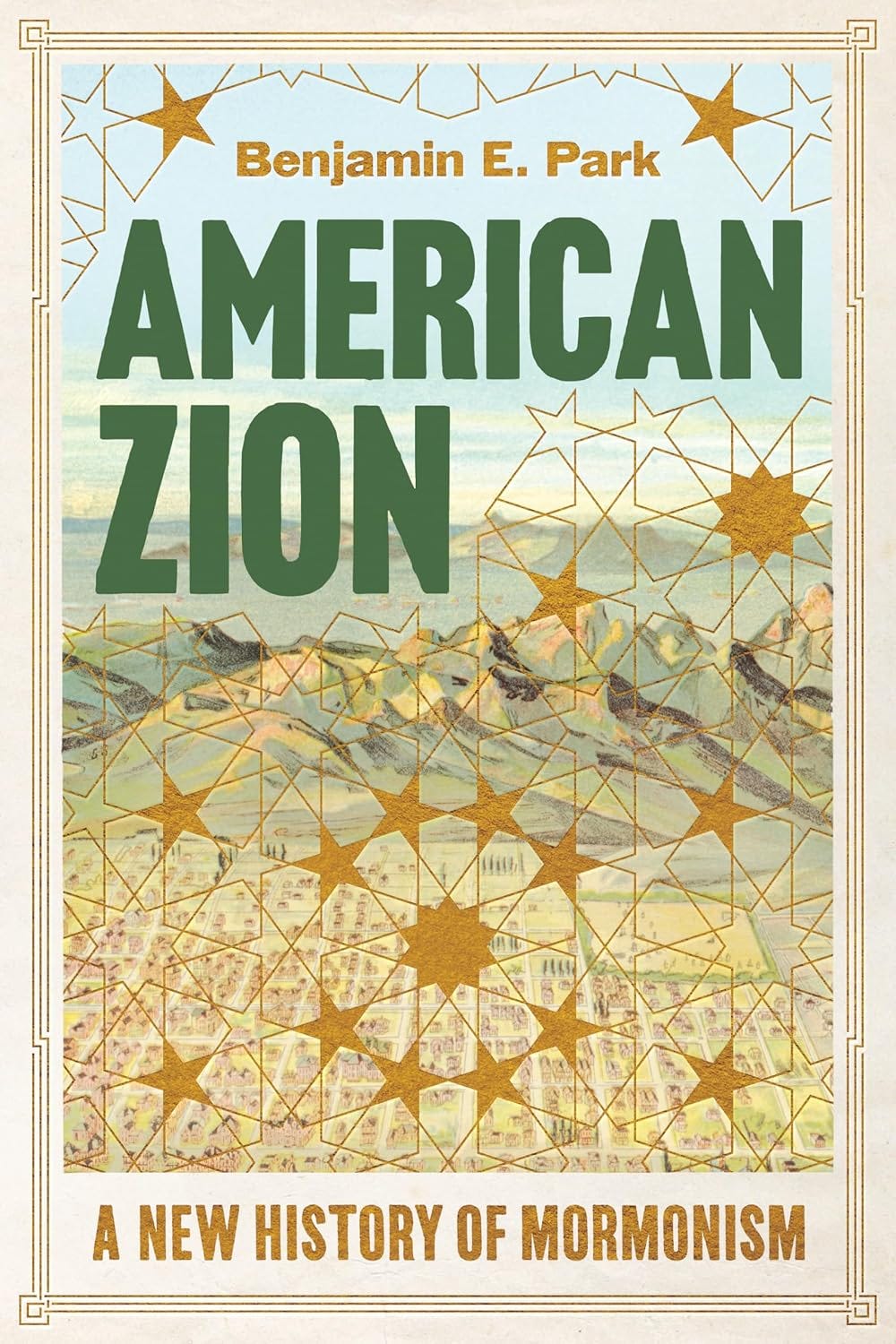Benjamin E. Park’s American Zion: A New History of Mormonism will be published by Liveright/Norton on January 16, 2024. Dr. Park was kind enough to answer 5 questions about his new book:
US Religion (USR): How does American Zion fit into your larger interests in religion and politics?
Benjamin Park (BP): Much of my scholarship is focused on religion and the problems raised by a democratic society, and American Zion is no different. American disestablishment created numerous opportunities for religious innovation, but it also enabled conflicts over what is and is not acceptable religious beliefs and ideas. My book aims to demonstrate how Mormonism reflects broader issues over church and state from the early republic all the way to the rise of the Religious Right.
USR: In 3-4 sentences, what do you hope readers take away from reading American Zion?
BP: First, I hope readers will take away the centrality of Mormonism to understanding American religion writ large. Second, I hope that they will see how the faith has been shaped by two hundred years of both internal and external conflicts, a long background that brought us to today's culture wars. And finally, I hope that they will experience a riveting story filled with engaging characters and climactic moments.
USR: In the introduction to your book you note that you take advantage of the availability of new sources. Which ones were you most excited to use?
BP: The LDS History Department has provided a number of important documentary editions of crucial sources, like the Joseph Smith Papers Project, private papers for women's leaders like Eliza R. Snow and Emmeline B. Wells, and diaries for authorities like George Q. Cannon and Spencer W. Kimball. Further, archival collections for lesser-known saints, as well as institutional records like periodicals and meeting minutes, enable us to get a glimpse into the lived experiences of every-day members.
USR: Did you have any "a-ha" moments while you were writing?
BP: I was struck at how much of modern Mormonism was shaped in one decade, the 1930s, and by one individual, J. Reuben Clark. Indeed, one of my more provocative arguments is that the broader religious debates that riveted the nation during the interwar years--conflicts over fundamentalism, progressive politics, and modern approaches to social problems--helped realign the Mormon tradition into a particular trajectory that brought us to today.
USR: What sorts of classes might your book fit well with?
BP: I would hope that this book would work well for general histories of American religious history as a framework through which to understand the nation's overall development. Each chapter focuses on central themes for that particular era, and can supplement a course's readings in and discussions of broader religious experiences. The book might also work well with courses focused on how religions intersect with politics and culture.




